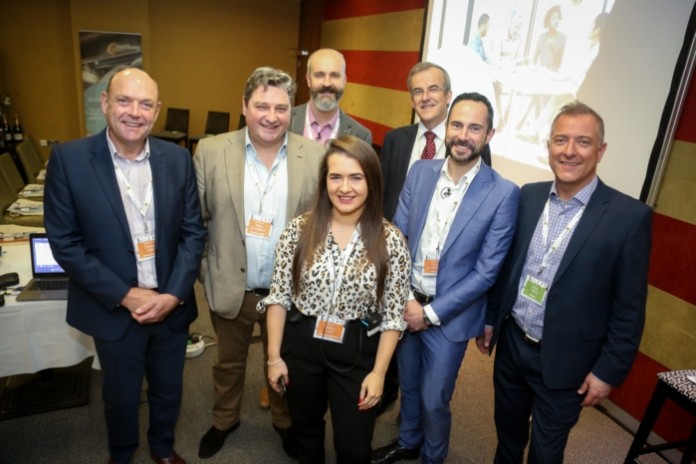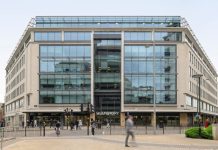
Property experts from across the UK discussed the hot topic of multi-generational office design at an interactive debate hosted by national fit out and refurbishment specialist, Overbury.
Three quarters of those who attended agreed that workspaces need to be designed with diverse workforces in mind. The event showcased an innovative format, with speakers posing questions to the audience who each voted anonymously in real-time using an electronic voting tool, before discussing the results.
Attended by 60 professionals, the debate posed a number of questions – do older workers have different needs to millennials, are graduates prefer to work in an agile environment or at a specified desk, and what is most important to both older workers and younger employees?
The panel featured David Hardman, CEO of Innovation Birmingham; Heather Evans, environmental manager and head of SKA consultancy at Rider Levett Bucknall; Jim Taylour, head of design and wellbeing at Orangebox; Joe Huddleston, senior project designer at Overbury; Mark Eltringham, publisher of Workspace Insight; and Simon Carter, managing director of Anticus Consulting.
After hearing the discussions and evidence before them the audience, which ranged in age from people in their twenties to people at retirement age, answered the question: ‘Should we be designing workspaces with multigenerational workforces in mind?’ The result revealed that 74% voted yes.
The panel highlighted the benefits of flexible and agile working, for all ages, as well as the importance of office location and office environment – these were found to be of particular importance to workforces at varying stages of life. The immersion of developing technologies was also agreed to be an important aspect of office design, as well as the ability to work within an open place space and interact with people across different age groups, coupled with more secluded and quieter spaces for more personal work areas when required.
Joe Huddleston, Senior Project Designer at Overbury said: “The event offered intriguing insight into this issue, which has become somewhat of a buzzword in the property industry. The results and discussions show it is still an important one to tackle.
“It’s clear that office designs do need to consider the multigenerational workforce, who will be spending a large part of their time there. The ideal office is a place where people are happy, comfortable and productive, where their needs are met and where they can make positive connections with colleagues. If it succeeds in doing this, the office will not alienate and stereotype groups; it will encourage people to share and learn from each other’s strengths instead.
“Millennials are now the most numerous individual demographic in the workplace but additionally studies show that the workforce is growing older. People working together from such a diverse age range will naturally have different needs. A variety of environments are required to cater for different workstyles and tasks – providing somewhere to escape from the hustle and bustle of the office, but also to enable social interaction and the buzz some people desire, are equally important.
“Wellbeing was also touched on and is becoming an increasing focus for the industry. We need to concentrate on supporting positive mental and physical health in the workplace, from helping employees manage stressors – like noise or cramped workstations – in the open-plan environment, to encouraging movement, good nutrition, better or natural lighting, ergonomic furniture, and brilliant air and water quality. These are all factors that impact everyone; but at different life stages, the way we address them changes too.”
The debate, which was hosted at Birmingham’s Opus Restaurant, coupled as a networking event.
Highlights – findings from the audience:
· 74% agreed that workspaces need to be designed with diverse workforces in mind
· 63% believe that graduates are happy to work in an agile working environment with no fixed space
· 49% believe that older workers have different needs to younger workers
· 66% believe that young people need space to concentrate just as much as older workers
· 49% believe that flexible working is most important for older workers
· 84% believe we need to design offices to promote interaction and knowledge share
· 82% believe open plan provides a great atmosphere and ‘buzz’




















